There has perhaps never been a time when Americans were more aware of the actions of the Supreme Court. In recent years, it has courted controversy and reshaped American life in new and often disruptive ways. Made up of just nine justices, who serve potentially lifelong tenures, the Supreme Court is a powerful branch of our government—but how much do we really know about the people who sit on it? These eight books, sometimes inspiring and always educational, will help shed light on some of the most famous Supreme Court justices in the history of the court…and even a few of the accomplished people who were considered for appointments.
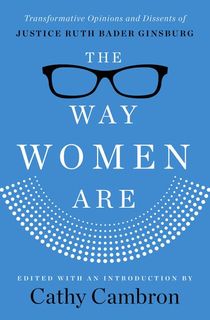
The Way Women Are
Across more than a quarter century as a Supreme Court justice, Ruth Bader Ginsburg—aka the “notorious RBG”—became one of the best-known, most famous, and most beloved of all Supreme Court justices in history, thanks in part to some of the landmark opinions and dissents that are collected in this book. It's edited and introduced by Cathy Cambron, an attorney herself, who also includes an introduction that will help to ground these legal writings in terms that even a layperson can understand.
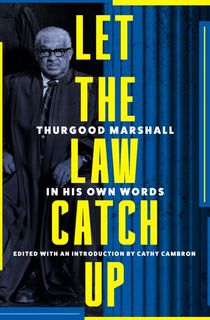
Let the Law Catch Up
In 1967, Thurgood Marshall became the first Black Supreme Court justice. But before that, he had already enjoyed a distinguished and groundbreaking legal career, including arguing in front of the Supreme Court for the case Brown v. Board of Education, one of the court’s most famous rulings. In this collection of Marshall’s own writings—including key opinions and dissents from his time on the Supreme Court—Cathy Cambron has brought readers one of the most influential Supreme Court justices in his own words, and given them an accessible peek into American history.

Brandeis
Even before his appointment to the Supreme Court in 1916—when he became the first Jewish Supreme Court justice—Louis Brandeis had already “accomplished nothing less than adding a chapter to our law” with the publication of an article in the Harvard Law Review which helped to define the “right to privacy.” Sometimes called “the people’s attorney” thanks to his work against monopoly interests, for equitable insurance policies, and on behalf of women’s rights, Brandeis was already an influential and beloved figure before President Woodrow Wilson appointed him to the Supreme Court. In this intimate and exhaustive biography, Lewis J. Paper draws from interviews with those who knew Brandeis both in his life and his work to give modern readers a portrait of an early star of the Supreme Court.
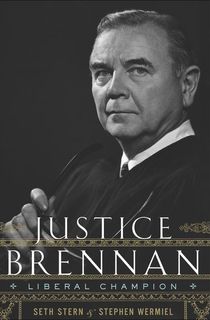
Justice Brennan
One of the longest-serving Supreme Court justices in history, William J. Brennan, Jr. was also a leader of the court during one of its most liberal periods, when landmark decisions were being handed down on everything from civil rights and abortion to voting and criminal proceedings. Brennan coined the phrase “chilling effect,” and left an indelible mark on our nation’s ideas of free speech. In this unprecedented biography, drawn from some of Brennan’s own personal papers, authors Seth Stern and Stephen Wermiel offer a look at a complex and sometimes contradictory individual.
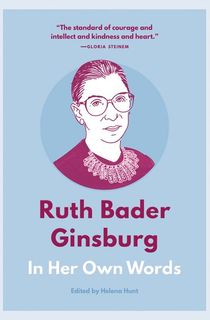
Ruth Bader Ginsburg
Few Supreme Court justices have had as much written about them as Ruth Bader Ginsberg—and few of them need someone else to speak for them less. A prolific writer and speaker whose wit and warmth are as famous as her opinions, this handy book of some of RBG’s most famous and influential quotations will give you a dose of this “notorious” Supreme Court justice whenever you need it. Edited and assembled by Helena Hunt, Ruth Bader Ginsberg: In Her Own Words is designed to be picked up whenever you need a bit of inspiration or a dose of wisdom.

The Environmental Justice
The question of environmental justice and policy is perhaps more important today than ever before. In this profile of William O. Douglas, the longest-serving Supreme Court justice in history, who sat on the bench from 1939 until 1975, author Adam M. Sowards explores how Douglas—and the Supreme Court as a whole—helped to shape the modern environmental movement and made conservation a part of U.S. public policy. A self-professed outdoorsman, Douglas’ many opinions included numerous positions in favor of conservation and environmental protections, including a landmark argument that inanimate objects such as trees or rivers “about to be despoiled, defaced, or invaded by roads and bulldozers” should have standing to sue in court.
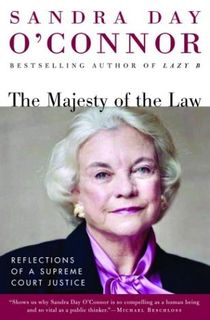
The Majesty of the Law: Reflections of a Supreme Court Justice
There have been numerous books written about Supreme Court justices, fewer written by them. In 1981, Sandra Day O’Conner became the first female Supreme Court justice. In this book that is equal parts memoir and judicial history, she looks back at her own groundbreaking appointment and tenure on the court, as well as across the history of the court itself, and America’s various legal institutions. In so doing, she gives a history not only of the Supreme Court, but of the law itself, and how it has changed over the years, all from a firsthand position in the highest court of the land.
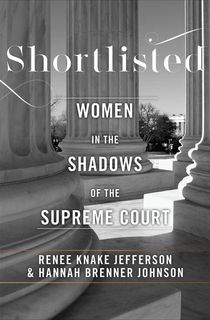
Shortlisted
Sure, we know about the justices who made it onto the Supreme Court—but what about the hopefuls who didn’t make the pick? In this “essential” (Library Journal) book, authors Hannah Brenner Johnson and Renee Knake Jefferson tell the stories of nine women who appeared on presidential shortlists for the Supreme Court back as far as the 1930s, all predating Sandra Day O’Connor’s 1981 appointment as the first female Supreme Court justice. Going beyond mere history, Shortlisted uses the stories of these nine remarkable women as a framework on which to build a discussion about inequality and injustice, how the appearance of diversity and actual equity are two different things, and how we can attempt to redress these problems going forward.
This post is sponsored by Open Road Media. Thank you for supporting our partners, who make it possible for The Archive to continue publishing the history stories you love.


